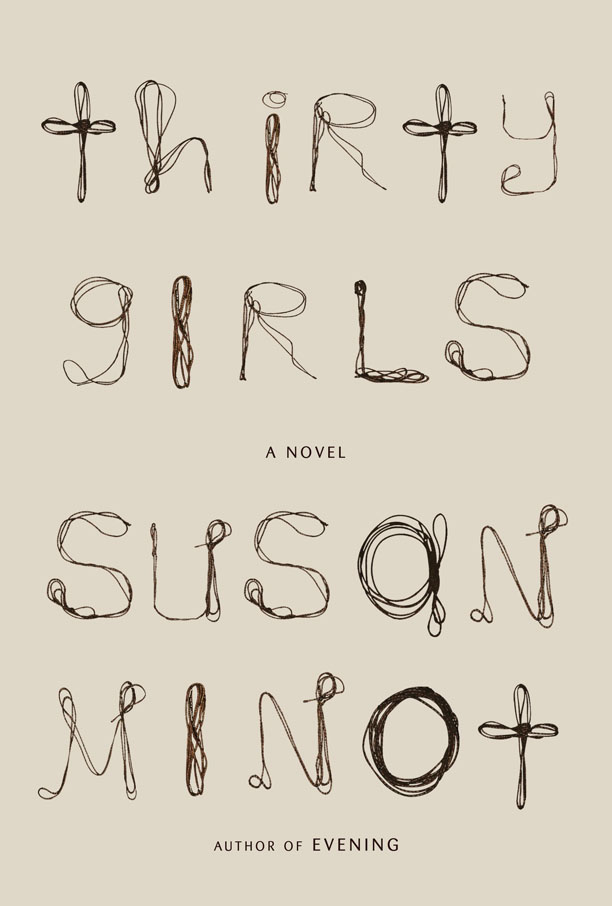Lambs Among Wolves
Susan Minot’s vivid new novel imagines a Ugandan rebel group’s abduction of thirty adolescent girls
In 1996 the Lord’s Resistance Army, a rebel movement in Uganda led by warlord Joseph Kony, broke into a girls’ boarding school in the middle of the night. Using brute—even torturous—force, this ragtag group abducted 139 girls, ultimately releasing all but thirty. The headmistress of St. Mary’s, Sister Giulia, “a slight person barely five feet long” followed the captors to plead for the children’s release. When she asked why the girls had been targeted, the captain “looked down at her, with a bland face, which said this was an irritating but acceptable question. To increase our family, he said, as if this were obvious. Kony wants a big family.”
 Inspired by Kony’s reign of terror across northern Uganda, Susan Minot’s fifth novel, Thirty Girls, renders the kidnapping in precise prose that invokes chilling dread. For the victims and their loved ones, the abduction turned inside out a world that had seemed safe. Kony’s ambition resulted in the abductions of tens of thousands of Ugandan children who were used as slaves and treated as disposable pawns. The German lyricist Friedrich Hölderin wrote that “where danger is, also grows the saving power.” From the early pages of Thirty Girls, Minot’s gripping narrative explores this theme through both exquisitely beautiful and vicious acts of humanity.
Inspired by Kony’s reign of terror across northern Uganda, Susan Minot’s fifth novel, Thirty Girls, renders the kidnapping in precise prose that invokes chilling dread. For the victims and their loved ones, the abduction turned inside out a world that had seemed safe. Kony’s ambition resulted in the abductions of tens of thousands of Ugandan children who were used as slaves and treated as disposable pawns. The German lyricist Friedrich Hölderin wrote that “where danger is, also grows the saving power.” From the early pages of Thirty Girls, Minot’s gripping narrative explores this theme through both exquisitely beautiful and vicious acts of humanity.
Chapters alternate between the perspectives of Esther Akello, one of the captured girls, and Jane Wood, a fortyish American journalist who’s traveled to Africa to cover the kidnapping. Jane is mired in minor concerns: she feels she hasn’t found her true calling, and she is mourning the death of her ex-husband, from whom she parted ways long before. Her self-indulgent musings stand in stark contrast to Esther’s struggle for survival. “Maybe she wasn’t getting enough sleep. Maybe they were drinking too much. Maybe she liked him more than he liked her,” Jane thinks of herself. “She was too old. Too needy.” Even as she recognizes the smallness of her concerns, she can’t stop them from spiraling. In a desire to flee from her own life she finds herself in Sudan, where she finds she hasn’t escaped from herself at all.
 Esther, meanwhile, plainly relates the atrocities that she and the other children endure: violence, verbal abuse, rape, and pregnancy. Her understated voice cuts as deep as a sharpened knife:
Esther, meanwhile, plainly relates the atrocities that she and the other children endure: violence, verbal abuse, rape, and pregnancy. Her understated voice cuts as deep as a sharpened knife:
You watch a rebel in battle use a boy as a shield, with a rope around his neck to keep him from crying out, and after seeing such things your heart changes. The heart turns to the side and looks away. In the bush it was not always easy to remember people might be full of love. If you were stubborn you could hold on to the view. My mother said I was a root hard to yank, so being stubborn perhaps helped me in this case. I would think of home and what was good there. I would sit in my father’s lap with my sisters, smelling the beer in this mouth. I would think of Philip and what swam through me when his skin touched my skin. Those things existed in the world even if they were not before me.
Esther’s narrative offers an absorbing record of courage and a vivid picture of shocking circumstances. These details—of the group’s long, haggard trek into Sudan, for example—ground the reader in the girls’ new reality: leashed, abused, objectified, and traumatized, but miraculously alive.
Minot is a writer of unusual grace and gumption. Her award-winning body of work includes the novel Evening, which was made into a film starring Meryl Streep; Lust and Other Stories; the screenplay, with Bernardo Bertolucci, for Stealing Beauty; and a book of poems. Her fiction is both truthful and dramatic. Minot shares Alice Munro’s talent for delicate, devastating specificity: “Your life is your own one moment,” recalls Esther, “then suddenly it changes and belongs to someone else.”
Thirty Girls contains no quotation marks, a stylistic device that blurs the lines between thought and dialogue, as well as the wall between Esther’s real-life nightmare and the memories she burrows into for refuge. Jane and Esther, in vastly different circumstances, must escape from their respective realities, and therein lies this novel’s redemptive power.
Susan Minot will discuss Thirty Girls at Montgomery Bell Academy’s Dead Poets Society Room, in Lowry Hall, on March 29, 2014, at 4 p.m. Lorrie Moore will also be on hand to discuss her new story collection, Bark.The event, part of the Salon@615 series, is free and open to the public.


